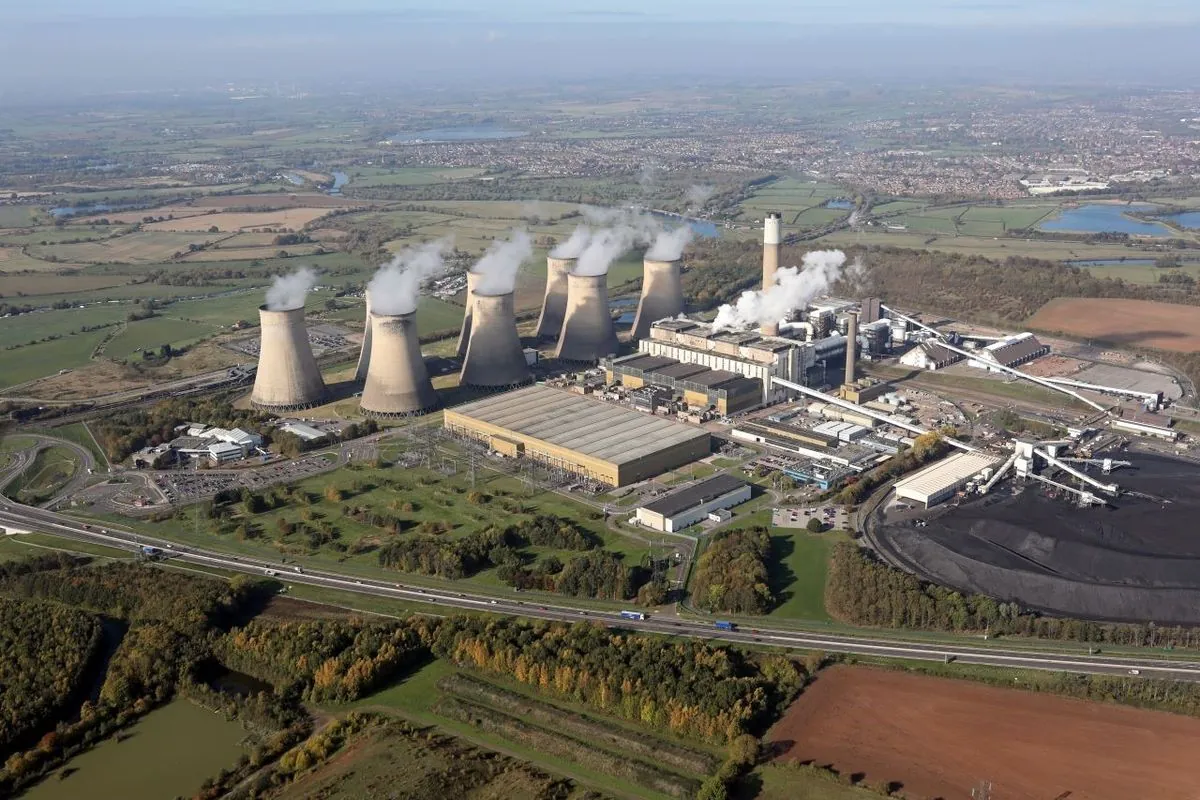UK's Coal Era Ends: Ratcliffe-on-Soar Receives Final Delivery
The last coal shipment to Ratcliffe-on-Soar power station marks the end of coal-fired electricity in Britain after 142 years. This historic shift highlights the UK's transition to renewable energy sources and its commitment to reducing carbon emissions.

On June 28, 2023, a significant chapter in British energy history concluded as the Ratcliffe-on-Soar power station received its final coal delivery. This event marked the end of coal-fired electricity generation in the UK, a practice that had powered the nation for 142 years.
The final shipment, a mere 1,650 tonnes, was a far cry from the station's heyday when it could power two million homes. This diminished delivery reflected the plant's reduced operations in its twilight months. Peter O'Grady, the plant's manager, expressed amazement at the rapid decline of coal power, recalling that when he began his career in 1988, over 80% of UK electricity came from coal.
The demise of coal-fired power in Britain was set in motion nearly a decade ago. In November 2015, the government announced plans to close all coal stations by 2025, a deadline later brought forward to 2024. This decision was driven by environmental concerns and the need to meet emissions targets.
The transition away from coal has been swift and dramatic. In 2010, coal accounted for 28% of UK electricity generation, while wind and solar provided just 2.7%. By 2023, this situation had reversed, with renewables supplying over 30% and coal contributing only 1%. This shift has led to a significant reduction in carbon emissions, with 2023 levels reaching their lowest point since 1879.
Ratcliffe-on-Soar, once at the forefront of Britain's electricity system, was part of a network of "super stations" built in the 1960s. These massive plants were strategically located near coalfields and connected to a new national grid, revolutionizing power distribution across the country.

The decline of coal power was influenced by various factors, including:
- The "dash for gas" in the 1990s
- Privatization of the electricity industry in 1990
- Introduction of the EU Emissions Trading System in 2005
- Implementation of a UK carbon price floor in 2013
Despite these challenges, Ratcliffe-on-Soar adapted and survived longer than many of its contemporaries. The plant underwent significant upgrades, including an £850 million life extension in 2008, and became adept at rapidly adjusting its output to meet grid demands.
The closure of Ratcliffe-on-Soar and other coal plants raises questions about the future stability of the UK's power grid. As the country moves towards its goal of decarbonizing the electricity system by 2030, the intermittent nature of renewable sources presents new challenges.
As Ratcliffe-on-Soar enters its six-year decommissioning process, its closure symbolizes the end of an era in British energy production. The site's future redevelopment plans reflect the ongoing transformation of the UK's energy landscape.
"After 43 years, I think I have done my bit."
This statement encapsulates the sentiment of many who have dedicated their careers to the coal power industry, now witnessing its final days. As Britain embraces a greener future, the legacy of coal-fired power stations like Ratcliffe-on-Soar will be remembered as a crucial chapter in the nation's industrial and energy history.


































